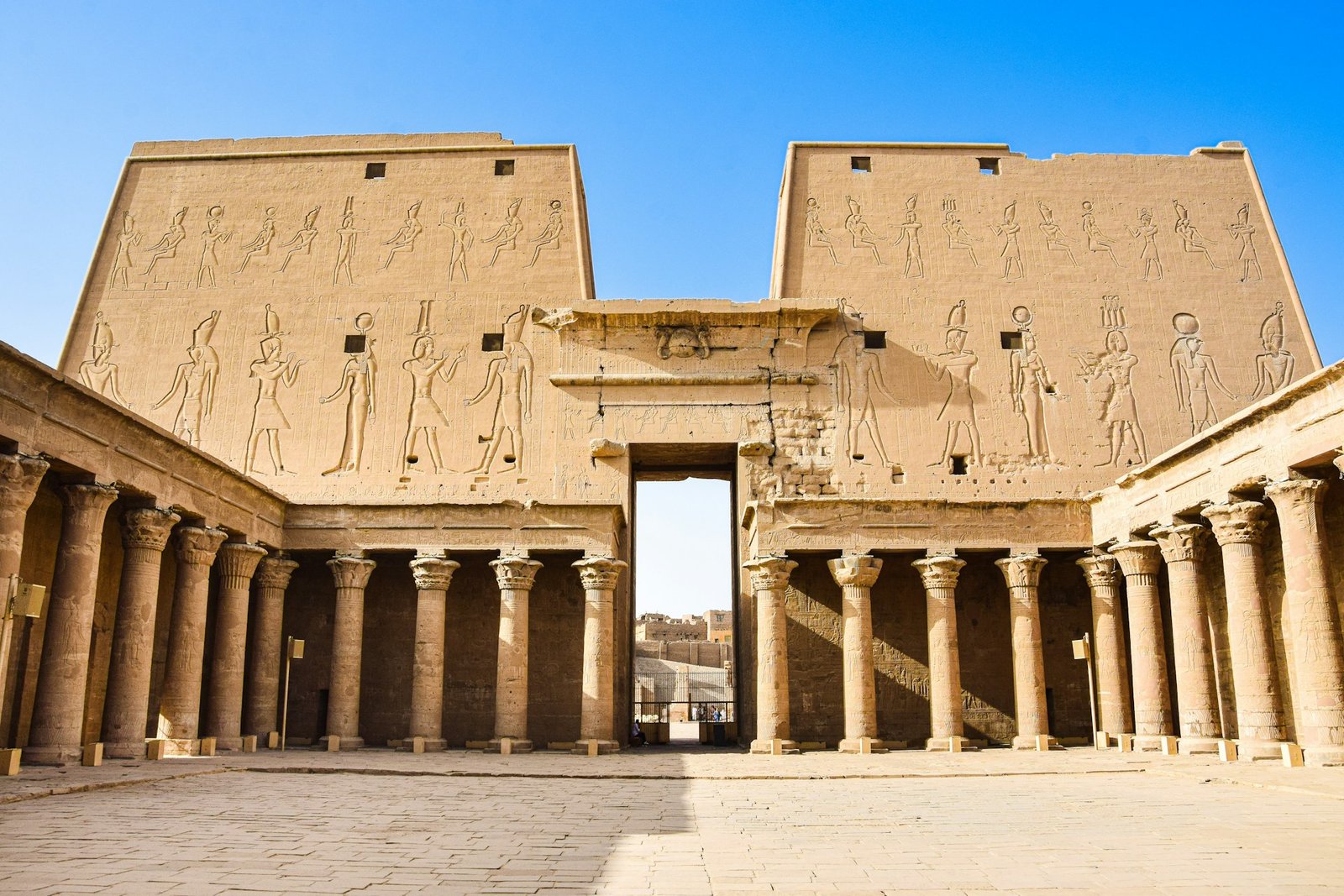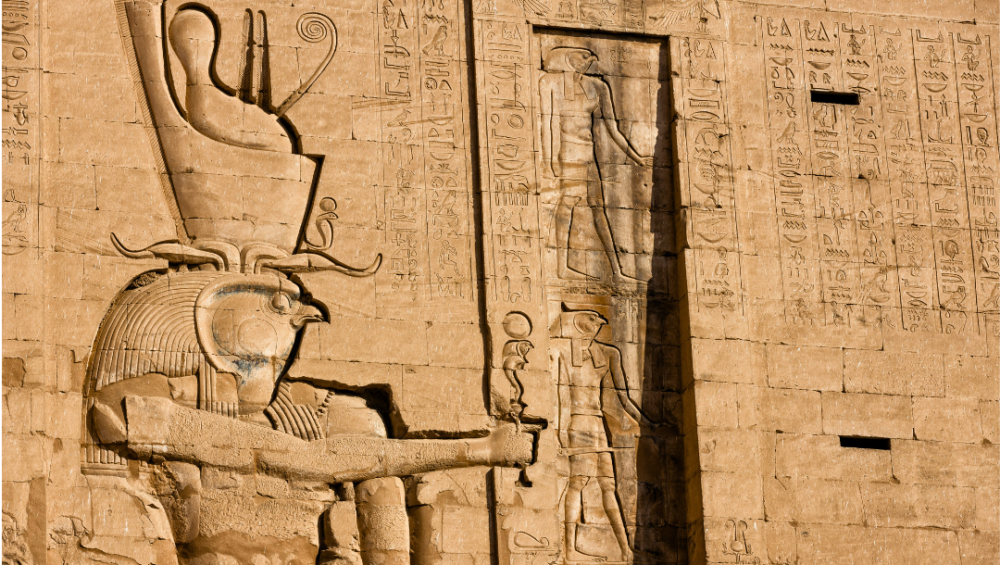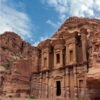Horus in ancient Egyptian mythology is one of the most significant and revered deities. Known as the god of the sky, kingship, and protection, Horus in ancient Egyptian culture played a pivotal role in the religious and political life of Egypt.
This article delves into the story, appearance, symbols, and fascinating facts about Horus in ancient Egyptian tradition.
The Story of Horus in Ancient Egyptian Mythology
Horus in ancient Egyptian mythology is often depicted as the son of Osiris and Isis. His story is central to the Osiris myth, where he avenges his father’s murder by defeating his uncle, Set, the god of chaos.
This battle symbolizes the triumph of order over chaos, a recurring theme in Egyptian mythology. Horus in ancient Egyptian belief is also associated with the pharaohs, who were considered his earthly incarnations.
The Appearance of Horus in Ancient Egyptian Art
Horus in ancient Egyptian art is commonly portrayed as a falcon or a man with a falcon’s head. The falcon symbolizes his connection to the sky and his role as a protector.
His eyes are particularly significant; the right eye represents the sun, and the left eye symbolizes the moon. The “Eye of Horus” is a powerful symbol of protection, healing, and restoration in ancient Egyptian culture.
Symbols Associated with Horus in Ancient Egyptian Culture
Horus in ancient Egyptian iconography is linked to several symbols:
- The Eye of Horus: A symbol of protection and royal power.
- The Falcon: Represents his dominion over the sky.
- The Double Crown: Signifies his rule over both Upper and Lower Egypt.
- The Ankh: Often held by Horus, symbolizing eternal life.
- The Sphinx: Sometimes associated with Horus as a guardian figure.
These symbols highlight the multifaceted nature of Horus in ancient Egyptian religion and his importance in daily life.
5 Fascinating Facts About Horus in Ancient Egyptian Beliefs
- Horus in ancient Egyptian mythology was believed to be the protector of the pharaoh and the nation.
- The conflict between Horus and Set is one of the most detailed myths in Egyptian lore.
- Horus in ancient Egyptian art is often shown wearing the pschent, the double crown of Egypt.
- The “Eye of Horus” was used as a protective amulet by ancient Egyptians.
- Horus in ancient Egyptian culture was also associated with the sunrise, symbolizing renewal and rebirth.
The Edfu Temple: A Testament to Horus

The Edfu Temple stands as a stunning tribute to Horus. Built during the Ptolemaic period, this beautiful structure sits on the site where, according to legend, Horus defeated his uncle Set.
This victory avenged his father, Osiris. As you visit the temple, you can admire the intricate carvings and inscriptions that celebrate Horus’s triumphs. These artworks tell stories of his importance in the divine order. Additionally, the temple features a sacred lake and a lovely courtyard, enhancing its peaceful atmosphere.
The Modern Symbolism: Horus in Today’s World

Furthermore, the symbolism of Horus continues today, even in modern logos. For example, the logo of EgyptAir features a stylized falcon, representing Horus.
This choice connects to Egypt’s heritage and identity, signifying strength and protection. Just as Horus once protected the pharaohs, EgyptAir now represents Egypt’s rich culture and history, linking the past with the present.
Conclusion
In conclusion, Horus remains a powerful symbol of protection and kingship in Egyptian mythology. His legacy shines through in the Edfu Temple, where ancient stories come to life.
Today, the image of Horus in the EgyptAir logo reminds us of Egypt’s rich cultural heritage. By exploring these connections, we can appreciate the ancient beliefs that still influence modern Egypt.
At Odysseys Voyage, we offer a variety of Egypt tour packages to help you experience these wonders for yourself. For a more exciting visit to Edfu Temple, explore our Dahabiya packages. Join us for an unforgettable journey through the heart of Egypt.
FAQ
What does Horus represent in ancient Egypt?
Horus in ancient Egyptian belief represents kingship, the sky, and protection. He is a symbol of divine authority and the rightful order of the universe.
What are 5 facts about Horus?
- Horus is the son of Osiris and Isis.
- He is depicted as a falcon or a falcon-headed man.
- His eyes symbolize the sun and moon.
- He defeated Set to avenge his father’s death.
- He is closely associated with the pharaohs of Egypt.
Is Horus the Egyptian god good or bad?
Horus in ancient Egyptian mythology is considered a benevolent god who protects order and justice. However, his conflict with Set shows the duality of good and evil in Egyptian beliefs.
Are Horus and Jesus the same?
While some parallels exist between Horus in ancient Egyptian mythology and Jesus, such as the concept of resurrection and divine birth, they are distinct figures from different religious traditions.




